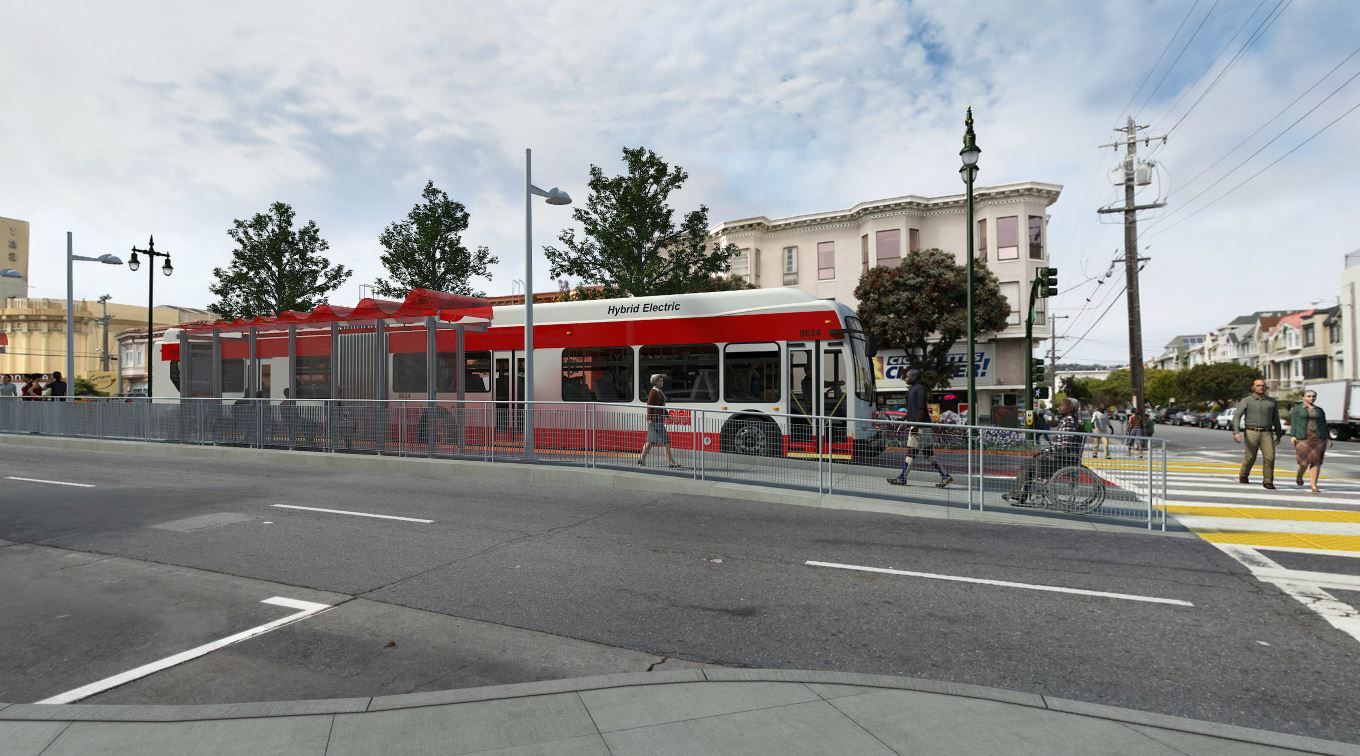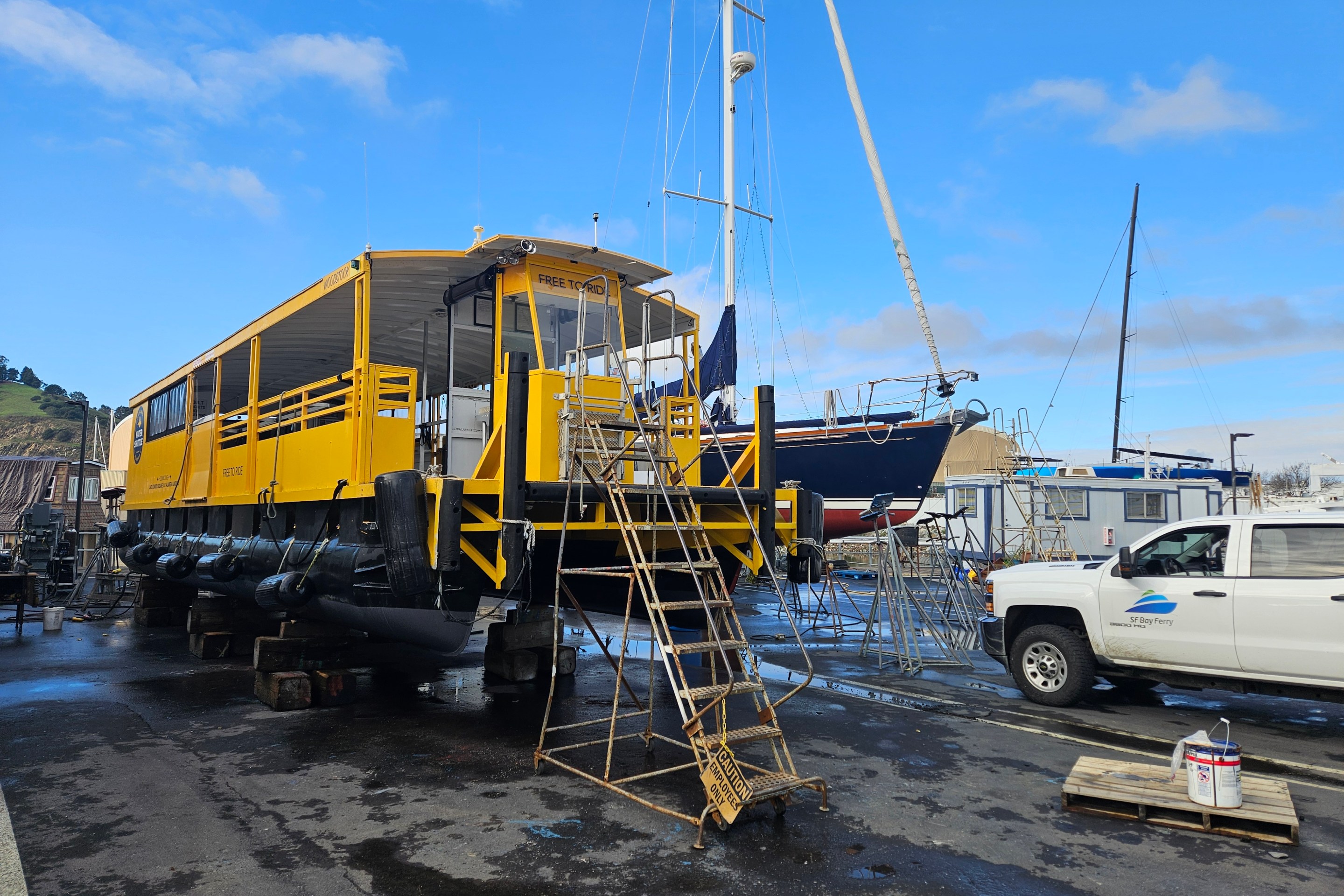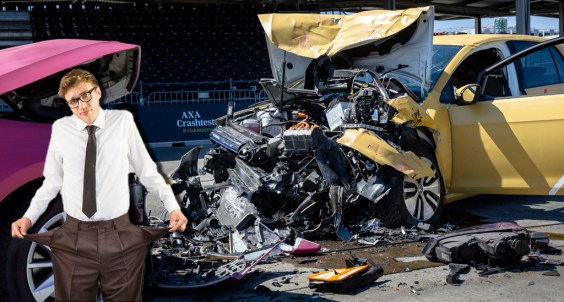Geary Boulevard last had a major upgrade in 1961, as Eisenhower was leaving office. This urban highway through the Richmond neighborhood no longer serves those who rely on it most. Congestion snarls up the almost 60,000 bus riders who commute on Geary daily, and slows cars to a crawl. Poorly designed intersections have turned much of the Boulevard into a safety hazard for neighbors and their children, and created an asphalt divide between the streets north and south.
Geary Boulevard should be so much more than it is today--a true gem of a street that the neighborhood can be proud of, that seamlessly connects the Richmond to downtown, and that is safe for all street users. The community-backed plan before the Board of Supervisors this Thursday would help fulfill that vision, and must move forward.
Geary Boulevard is not just any other neighborhood street. Its buses carry more passengers than any other Muni route in San Francisco. One of the main proposed upgrades to Geary is massive improvements to the bus service. Geary Bus Rapid Transit, or BRT, as the new bus service will be known, will make the 38 buses that travel along Geary from the Beach to Downtown similar to MUNI light rail at a fraction of the cost of laying rail track. The 38s will have dedicated lanes, high-quality boarding platforms, and more frequent service. If you ride the 38, the benefits of this investment are clear: you will experience 20 percent shorter travel times and fewer delays. These improvements will have a particular impact on those who, because of the cost of driving and ride-sharing, have no other option than taking the bus - many teachers, students, late-shift workers and seniors.
More frequent and efficient bus service will have a huge benefit to those who drive on Geary as well. As the 38 becomes faster and more reliable, more folks who previously chose to drive will jump on the bus, taking cars off the road. Major improvements to high capacity bus service is one of the most proven and cost-effective ways of relieving congestion, as well as improving local air quality and reducing climate emissions. As additional benefits to adjacent neighborhoods and those who drive on Geary, street repaving and new plantings will help turn this aging Urban Highway into the graceful Urban Boulevard that it once was and can be again.
The remainder of the Geary upgrades, including ADA access and other street improvements will make the Boulevard safer for neighbors, especially seniors and children. Today, pedestrians crossing Geary are eight times more likely to be hit by a car than the citywide average. Adding bulb outs to key intersections, for instance, will put an end to the all too common situation where old folks and children find themselves with one lane still to cross as the lights turn green and cars start to zip by them.
In an era when federal and state transportation dollars are increasingly scarce, the need to find cost-effective transportation solutions has never been more important. Light rail or subways down Geary would cost billions. While we support rail in Geary’s future--and the current upgrades help Geary become rail-ready--today’s reality is that there is no path to securing that kind of funding any time soon. But we can, with this set of Geary upgrades, move forward with important life-and-time-saving improvements now, at a fraction of the cost of rail.
For more than a decade, these upgrades to Geary have undergone robust vetting by the community and have incorporated much of the neighborhood’s feedback. However, like is often the case in our city, a handful of individuals with special interests continue to fight the upgrades to Geary every step of the way. The time has come for the needs of tens of thousands of riders and the hundreds of thousands of people who live, work and travel along the corridor to come first.
If you ride the 38, live in the neighborhood, or simply want to stand up for a transportation system that benefits us all - join us in supporting a better Geary with massively improved bus service.
Please email your Supervisor or attend the final hearing at San Francisco City Hall, room 250 at 2PM on Thursday January 5 (today!) and have your voice heard.
Paige Miller is the Chair of GoGeary, serves on the Geary Citizens Advisory Committee, and is a Richmond District resident. Nick Josefowitz represents District 8, which includes much of the Geary Corridor, on the Bay Area Rapid Transit (BART) Board of Directors.
A version of this editorial appeared in the San Francisco Examiner.





